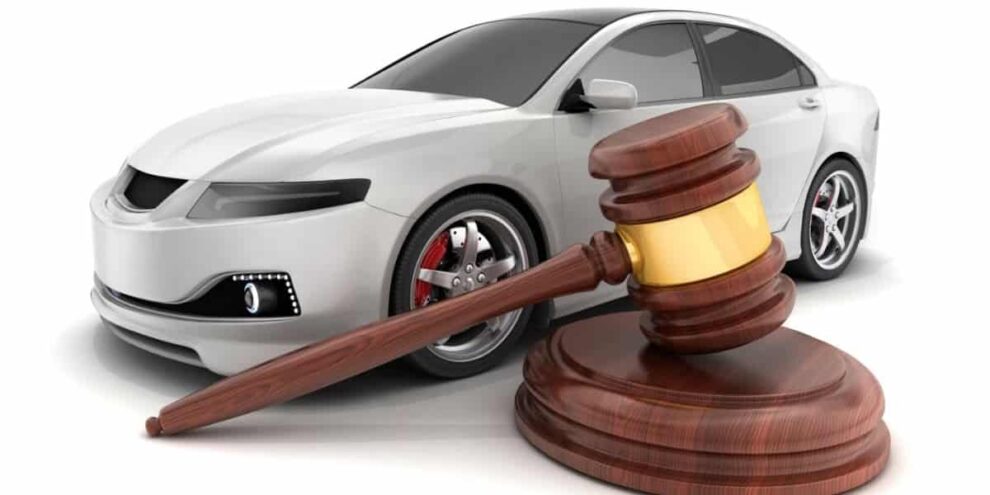Owning a car is a significant responsibility, involving more than just the routine tasks of maintenance, fueling, and driving. It encompasses a set of legal rights and obligations that every car owner should be well-versed in to protect themselves and others on the road. Understanding these legalities can prevent costly mistakes and ensure your rights are upheld in various situations, from purchasing a car to dealing with accidents or law enforcement.
Your Rights When Purchasing a Vehicle
When buying a car, whether new or used, you have specific legal protections to ensure the transaction is fair and transparent.
Right to Clear Title
As a buyer, you have the right to receive a clear title to the vehicle, free from any liens or legal disputes. Ensure that the seller provides all necessary documentation proving their ownership and the car’s clean title history.
Right to a Fair Deal
Dealerships are legally obligated to disclose certain information about the vehicle, including its history, any known defects, and warranty terms. Lemon laws in many regions protect consumers from being stuck with defective vehicles. If a car repeatedly fails to meet standards of quality and performance, you may be entitled to a replacement or refund.
Your Rights on the Road
Owning and operating a car involves understanding your rights during routine traffic stops and inspections.
Right to Privacy
While you must comply with reasonable requests from law enforcement, such as providing your driver’s license and proof of insurance, you have the right to refuse a search of your vehicle unless the officer has a warrant or probable cause.
Right to Remain Silent
If you are stopped by the police, you have the right to remain silent to avoid self-incrimination. It’s advisable to be polite and cooperative, but you do not have to answer questions beyond providing basic identification details.
Your Rights After an Accident
Car accidents can be stressful, but knowing your legal rights can help you navigate the aftermath more effectively.
Right to Compensation
If you are involved in an accident that is not your fault, you have the right to seek compensation for damages from the at-fault driver’s insurance company. This can cover medical expenses, vehicle repairs, and other related costs.
Right to Legal Representation
You have the right to consult with an attorney, especially if the accident results in significant injury or damage. Legal representation can help protect your interests and ensure you receive fair compensation.
Dealing with Insurance Companies
Interacting with insurance companies is an inevitable part of car ownership, particularly when filing claims or negotiating settlements.
Right to Full Disclosure
Insurance companies must provide you with complete information regarding your coverage, including any exclusions or limitations. This transparency helps you understand your policy and what it covers.
Right to Dispute a Claim
If your claim is denied or you receive a settlement offer that you believe is unfair, you have the right to dispute the decision. This may involve providing additional evidence or even seeking legal advice to challenge the insurance company’s decision.
Your Rights Regarding Vehicle Repairs
When your car needs repairs, especially following an accident, you have specific rights to ensure the process is fair and transparent.
Right to Choose Your Repair Shop
In many regions, you have the right to choose your repair shop, rather than being forced to use one recommended by your insurance company. This ensures you can select a shop you trust for quality repairs.
Right to Genuine Parts
You have the right to request original equipment manufacturer (OEM) parts for your vehicle, rather than aftermarket parts, which may not match the quality or specifications of the original components.
Your Rights as a Borrower
If you finance your car through a loan, it’s essential to understand your rights to protect yourself from unfair lending practices.
Right to Transparent Terms
Lenders are required to disclose all terms and conditions of your loan agreement, including interest rates, fees, and the total cost of the loan. This transparency ensures you fully understand your financial obligations.
Right to Privacy
Your financial information is protected by privacy laws, and lenders must handle your data securely. They are also required to provide clear information on how your data will be used and who it will be shared with.
Protecting Your Rights
Understanding your legal rights as a car owner is the first step in protecting them. Here are a few tips to ensure you are always prepared:
Keep Documentation Handy
Always keep essential documents, such as your driver’s license, registration, proof of insurance, and vehicle title, easily accessible. These documents are crucial in various situations, from routine traffic stops to insurance claims.
Stay Informed
Laws and regulations regarding car ownership can change, so it’s essential to stay informed about any updates that may affect your rights. Subscribe to newsletters or alerts from reputable sources to keep up-to-date.
Consult Professionals
Don’t hesitate to seek professional advice if you encounter a situation that affects your legal rights as a car owner. Attorneys, insurance agents, and consumer protection agencies can provide valuable guidance.
Owning a car involves a myriad of legal considerations that extend beyond just driving. From understanding your rights when purchasing a vehicle to navigating the complexities of insurance claims and dealing with law enforcement, being well-informed can save you time, money, and stress. By knowing your rights and taking proactive steps to protect them, you can ensure a smoother and more secure car ownership experience.
















Add Comment